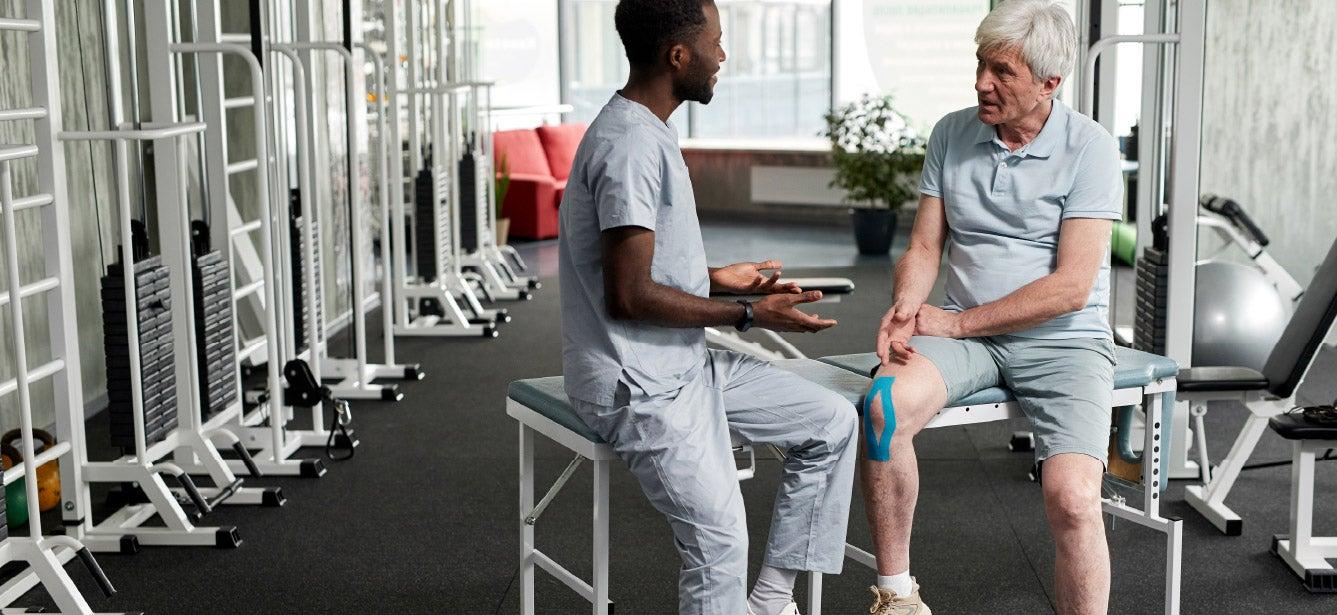
Related Topics
Physical therapists treat movement problems in people of all ages so they can lead the lives they want to live. Physical therapists are essential partners in helping you do the things that are meaningful to you and to be as active as you want to be.
An important step in this process: helping people manage their fall risk. A physical therapist can:
- Help identify reasons why you might be at risk for a fall and
- Address those risks to reduce your risk for falling
Many people do not realize or think they are at a risk of falling until they experience a fall.
Common reasons someone may be at risk for falling
Several things can contribute to falls, but unsteadiness, problems walking, and dizziness are common ones. Physical therapists have expertise in identifying these issues and helping you to address these problems so you can move better and more confidently. To get started you can also check your risk of falling by answering these short, online questions.
Can a physical therapist help if I haven’t fallen, but am concerned about falling?
Yes! A physical therapist can help you stay well and keep you moving at any stage of life. In fact, the American Physical Therapy Association recommends everyone receive an annual assessment from a physical therapist.
Can a physical therapist help after I’ve had a fall?
Absolutely! If you’ve already experienced a fall, working with a physical therapist is an important step to reducing your chances of another fall and of an injury.
What will a physical therapist do for me?
First, a physical therapist will talk with you to learn about your concerns, the types of activities you enjoy, and your goals for attending physical therapy. Depending on your concerns and interests, a physical therapist can:
- Assess your balance, strength, and walking
- Assess other factors that may contribute to your risk for falling
- Help you improve your abilities and confidence in doing activities you enjoy
- Teach you safe ways to get on and off the floor should you experience a fall
- Work with you to maximize getting around your home and community safely
- Provide you with individualized exercises and help you find a community exercise program that is right for you
- Work with your other health care providers to help you address reasons you may be at risk for falling
How do I find a physical therapist?
Asking friends, family, your doctor, and even staff at your senior center for a recommendation can be helpful in finding a physical therapist who will partner with you. The American Physical Therapy Association (APTA) also provides an online search tool.
Will my insurance cover physical therapy?
Health insurance plans, Medicare, and Medicare Advantage plans cover physical therapy, especially if you are having trouble with your balance or walking. Check with your physical therapist and your insurance plan to see if you need a physician’s referral, and ask if there are any copays you will be expected to pay.



